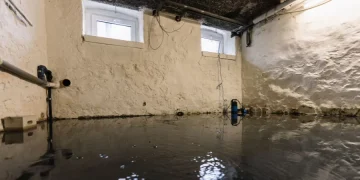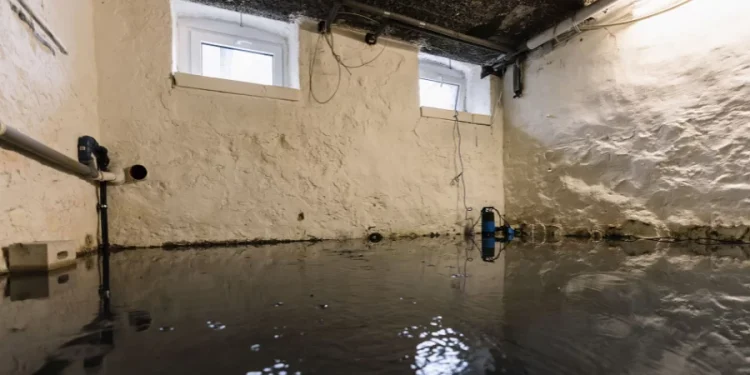If you walk into your basement and feel the air is damp, smell something musty, or see water stains near the floor, you’re dealing with more than a nuisance. A wet basement can lead to mold, structural issues, and damage to items stored below ground level.But here’s the good news: wet basement repair doesn’t have to be confusing or costly, if you act early and choose the right fix.
What Causes a basement to Stay Wet?
Most basement leaks begin small and worsen over time. The water usually isn’t from a burst pipe or an obvious flood. It’s from something more subtle:
- Cracks in the foundation or walls
- Poor exterior drainage
- Heavy clay soil that traps moisture
- Missing or broken downspouts
- High water table in the area
- Hydrostatic pressure pushing water through the basement walls or floor
Once moisture gets in, it doesn’t just sit quietly. It spreads, warps wood, grows mold, and ruins finishes.
Signs You Need Wet Basement Repair
Some signs are easy to spot. Others can be easy to miss until they become a significant problem. Here’s what to look for:
- Water stains on the basement walls or floor
- A musty, damp smell
- Flaking paint or bubbling wall surfaces
- Mold or mildew, especially in corners
- Efflorescence (white powdery buildup on concrete)
- Rusted appliances or tools stored in the basement
- Flooring that feels damp or warped
If you see one or more of these signs, your basement isn’t just humid – it’s wet, and it needs attention.
Quick Fixes vs. Long-Term Solutions
Many homeowners try to dry out a basement with fans, space heaters, or dehumidifiers. These help reduce moisture in the air, but they don’t fix the source of the problem. This is when you need proper wet basement solutions.A professional contractor will look beyond surface issues and get to the root of the problem with the water. That usually involves:
- Sealing cracks with waterproof materials
- Installing or upgrading sump pumps
- Adding interior or exterior drainage systems
- Applying vapor barriers to walls and floors
- Redirecting water away from the home with proper grading
The right solution depends on what’s causing the problem and how long it’s been happening.
A Homeowner’s Example
Let’s say a homeowner in Mokena notices the basement feels sticky in summer and smells like mildew after a storm. Over time, dark spots show up near the base of the walls. Eventually, cardboard boxes stored on the floor start to grow mold.They try a dehumidifier, which helps a little, but the smell and stains return after every heavy rain.When they bring in a waterproofing expert, the inspection reveals cracks along the foundation wall and water pooling near the house, which is attributed to blocked gutters. The solution includes sealing the cracks, cleaning the gutters, and installing a French drain system outside.After that, no more musty smell. No more damp boxes. That’s what proper wet basement repair does: it stops the cycle for good.
Why You Should Act Early
A wet basement doesn’t dry itself out. Moisture can get into your home’s framing, spread mold into the air, and attract pests like termites. If the problem continues to worsen, you may need to remove drywall, flooring, or insulation, and that’s when costs rise rapidly.
Can You Prevent a Wet Basement?
Yes, and it’s simpler than you think. Prevention starts with:
- Keeping gutters clean and extended
- Checking for signs of moisture after storms
- Making sure yard grading slopes away from your home
- Having your basement inspected regularly, especially in older homes
- Ensuring your sump pump is working (and has a backup power source)
You can’t stop rain or snowmelt, but you can control how it affects your home.
What to Avoid
Some products claim to “waterproof” your basement with just a coating or sealant. But if you don’t address the water source, those products usually fail. Paints and sprays don’t hold up under long-term pressure. A full repair plan might sound like more work, but it gives you real, lasting results.
Final Thought
A damp or flooded basement doesn’t fix itself. The longer water remains, the more damage it causes. With the right wet basement solutions, you can protect your home, prevent mold growth, and make your basement usable again. So, if you’re seeing water, stains, or that familiar musty smell, take it seriously. Wet basement repair is worth every bit of peace of mind it gives you.






















































